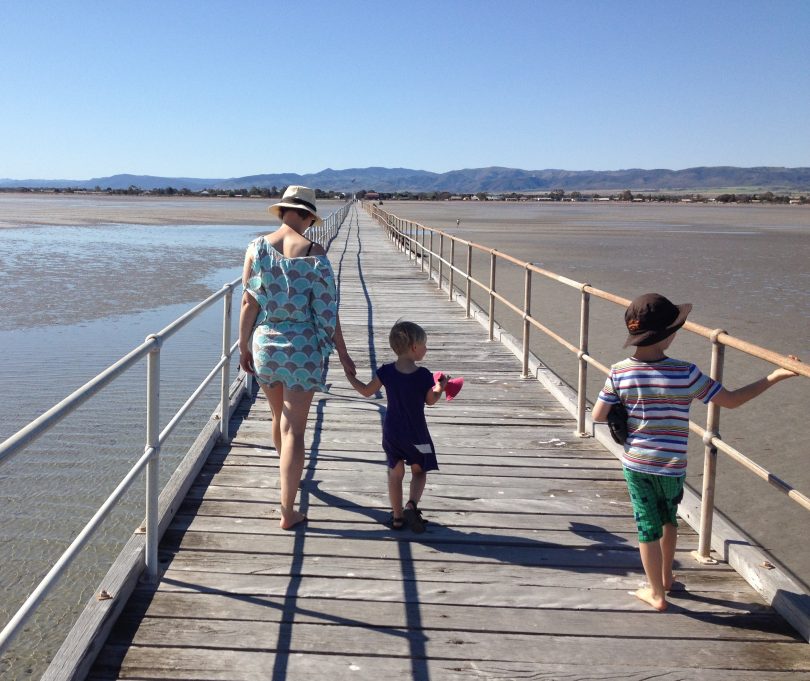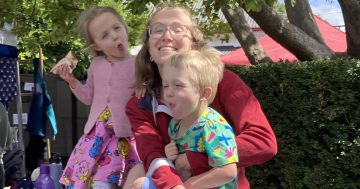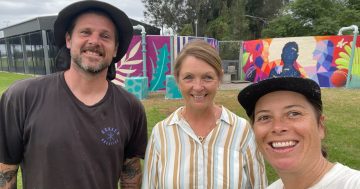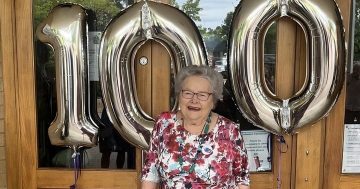
Parenthood can be a long road on your own. Photo: Supplied.
Imagine you’re a parent, alone in the house with a sick toddler and a grizzly baby, and you’ve run out of milk.
You have to get everyone dressed and put shoes on, strap them into car seats, park, take them out again, put the baby in a carrier and walk to the shop.
If there was a second adult in the house, someone could go to the shops and someone stay at home with the kids. But most households don’t have this luxury as we try to balance time at work, time with kids and time for ourselves.
And it’s not available at all in single-parent households (I bow down to you, solo parents).
My husband and I have had a 21-year-old living in our spare room for the past two months, who moved home to Bega from the city at the beginning of the COVID-19 pandemic.
It’s not the way he thought his life was going to go, but for us it’s been fantastic to have his help and company and to be around an age group which is fairly rare in rural towns (I now know way more about how Tinder works!).
Having a housemate again has got me thinking about how well us humans work together outside nuclear family units and wondering why so many of us spend so much money and effort trying not to live with other people.
Sharehousing is seen as something we do when we’re young, or when we’re down and out, or don’t have money. In fact, the more money we get, the more space we can buy and the further away from other people we can get.
Buying the family home is the pinnacle of middle-class success, but it also sets us up for a life of increasing isolation, culminating in the mess we now see in aged care.
Recent, pre-COVID-19 experiments that merged preschools and aged care facilities have been hugely successful. We all know that very young children and grandparents are a match made in heaven, often needing a nap at the same time.
But when it comes to household efficiency, any warm body will do.
“I’m just running to the shops, please call an ambulance if necessary,” I call to our housemate on my way to the shops to get milk.
Our kids are now eight and five and pretty self-sufficient. In another era, I would have left them alone while I went to the shops but it’s just not the done thing now. And besides, it’s much more relaxing to have another adult around in these scenarios, leaving me free to chat in the supermarket aisles without wondering if the house is on fire.
When we did have a baby and toddler, we lived with a friend who was around 30 at the time. She had her own little apartment downstairs and had just started dating someone she was serious about, but wasn’t sure if she wanted kids.
After living with us for two years and seeing my husband and I stuff all our sheets through the wash after a night of everyone vomiting, or spending an hour outside with a screaming child, she decided kids were not for her.
So maybe that’s why we don’t tend to live with families before we have one – it makes parenthood a hard sell.
It’s also true that parenting often leaves us raw and vulnerable. There were days in the early stages of parenting when I remember feeling so drained that making eye contact with another adult felt like too much effort.
But having other people around also reduces the amount, and intensity, of the hardest days.
When living with others, we run the risk of them seeing us being jerks to our kids, or yelling at each other, but in showing someone outside our nuclear family these realities, we open ourselves up to accepting their help.
Having others witness our family lives keeps us accountable, making verbal or physical abuse less likely – and it’s not just about reducing the extremes of bad behaviour. Knowing someone outside our relationship is there makes my husband and I less likely to fall into bad habits such as being grumpy with each other for extended periods.
When I woke up this morning, I went to the fridge. I had a bad feeling about the milk situation, but there it was, a full two-litre jug, ready for porridge and coffee.
“Did you get milk?” I asked my husband.
“Nope,” he said, grinning.
Original Article published by Elka Wood on About Regional.





















